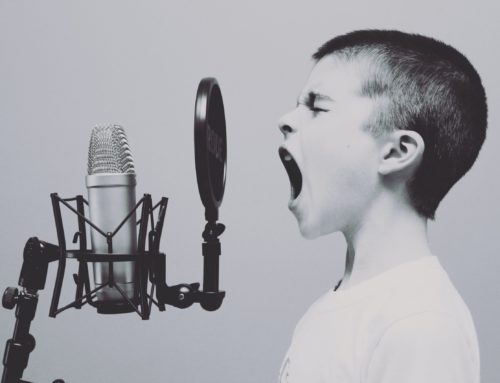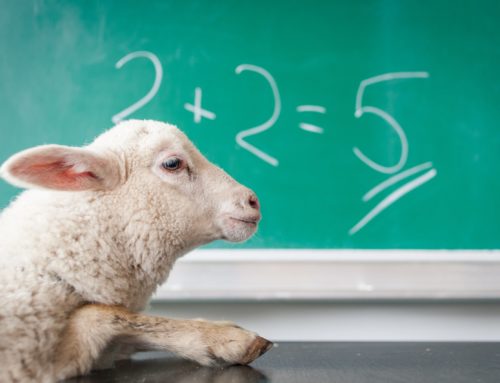Simone Biles’s withdrawal from the 2020 Tokyo Games due to concerns was met with shock, empathy, compassion, and of course the usual critics and outrage machines.
When I look at Simone Biles the athlete, I see a dominant once-in-a-lifetime talent. She has been called the Great Gymnast of all time with several moves named after her because she was the first to do them in competition. Her athletic skills are undeniable and many were saddened to see her withdraw from the competition because she was one of the main draws for this pandemic postponed Olympic Games.
When I look at Simone Biles the young woman, I see a woman in her early 20’s who has spent most of her life working toward being the best in her field. All of those hours of dedication to one singular focus of being the best in her sport through injuries, fatigue, and constantly being in the public eye.
Gymnastics is a sport for young girls. Injuries, puberty, and the wisdom to know the limits of one’s body are enough for retirement by age 20. We rarely even see girls compete back to back in the Olympics. (2012 Olympic All-Around champion Gabby Douglas was an exception competing in Rio in 2016.)
The real anomaly is gymnast Oksana Chusovitina from Uzbekistan who took her final curtain call at her eighth Olympics at the age of 46.
When I look at Simone Biles, I also see a survivor. Simone Biles along with other brave and courageous women had the guts to stand up against the US Gymnastics Association because of their treatment of gymnasts under their care. Biles and other gymnasts were instrumental in finally bringing US Gymnastics Team Doctor Larry Nassar to justice after he molested dozens of young women over the years. Nassar was tried, found guilty, and sentenced to concurrent sentences of 40-125 years in prison and 40-175 years in prison.
According to an article in USA Today, one of the reasons Biles wanted to compete in Tokyo is so that the abuse scandal would not be swept under the rug
Olympic gold medalist Simone Biles told Hoda Kotb in an interview in April that gymnastics wasn’t her sole reason for continuing to compete. She said she’s driven to be a voice for change.
“If there weren’t a remaining survivor in the sport they would’ve just brushed it to the side,” Biles said. (Source USA Today)
I believe that she is right. Without Biles there to talk about what USA Gymnasts were forced to endure over the years, there would have been a whitewashing of the US Gymnastics program and the media would have tried to create new darlings for the 2020 Games.
However, it is not Simone Biles’s responsibility to take this upon herself. The responsibility is upon those who are in charge of the United States Olympic program. The criminal justice system needs to hold the United States Gymnastics Association responsible for the abuse that these young gymnasts endured.
This has become an unfortunate theme in sports in the social media era. Not only are athletes expected to face the pressure of elite-level competition but now they are expected to save the world all while being marketable to sell products.
I believe this is placing additional undue stress on their mental ability to focus on their competitions and adding to internal mental health challenges. I believe we place too much responsibility on athletes to do what should be done by the officials in charge of their sports and lawmakers.
It is not the job of athletes to save the world.
Distraction without meaningful results
During one of the Olympic telecasts, I heard a reporter say something to the effect of: “The athletes who are winning gold have all talked about their intense mental focus on their events. They say they have to be extremely focused.”
I was puzzled because that is how it works.
That is how it used to work before social media was a 24/7 distraction and before athletes were asked to constantly comment on issues that had nothing to do with their events. The politicization of sports has only added fuel to the fire and many are being asked questions about deeply divisive and emotionally charged topics that can get one out of the mindset of focusing on sport.
Yes, I’m going to go here: It’s mostly asked of Black athletes and especially Black women. They are expected to be social justice warriors, champions, and marketable.
One of my colleagues Cecily G, made a fantastic point on a Facebook post
“Mental fortitude is part of competition.
I also think more pressure needs to be put on the coaches. Are they preparing their athletes to be mentally/emotionally prepared?To compete at anything is already an abusive endeavor. I think all the flowers and hugs are b.s.I think we’re looking at the end of the Olympics being special. It’s becoming manicured.Athletes are expected to be pretty, smart, caring, bright and shining — it’s too much.I prefer my winners to be a bit of an asshole who wants to beat their competition into the ground and that alone is the glory” – Cecily G.
The Public must also lower their expectations of athletes
Athletes are not superhuman
Before the 2020 Tokyo Games, Simone Biles was marketed as superhuman but she is not. She is a human being and should be treated as such.
It was later learned that Biles’ withdrawal from the gymnastics competition was more complicated than “mental health”. She was experiencing what gymnasts call “The Twisties”. This is when gymnasts get lost in the air because their minds and bodies are not in sync. This sounds like a neuromuscular issue and at 24 years old, Simone Biles was wise and experienced enough to withdraw from the competition because a case of the “twisties” can cause devastating injuries.
I read the story of a gymnast who was paralyzed because she decided to push through her case of the “twisties”. She said she immediately recognized the look in Simone Biles’s eyes post vault because she had experienced the same thing.
Athletes experience human emotions, they grow older, and after years of being “Superhuman” their mortal bodies break down due to repetitive stress and injury. They don’t owe us anything.
We are privileged to be inspired by their greatness and that is enough.






Leave A Comment